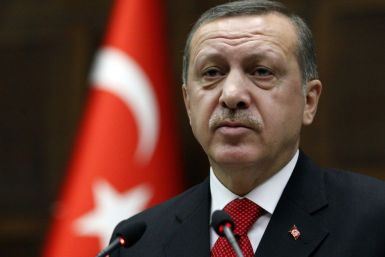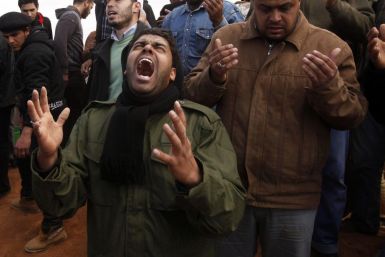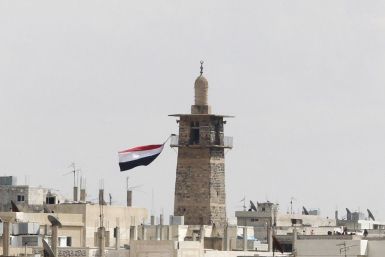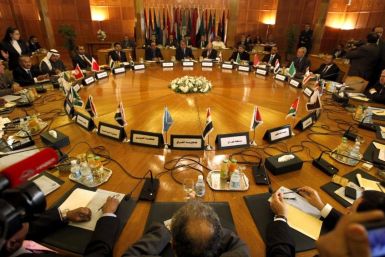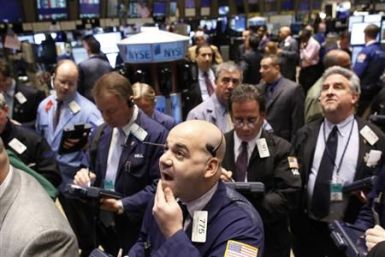Brent crude fell for a second day on Thursday, shedding as much as 0.5 percent toward $115, after the resignation of Portugal's prime minister rekindled euro-zone concerns, prompting oil traders to unwind long positions and take profits.
U.S. crude ended at a 2-1/2 year high on Wednesday as Palestinian rocket strikes on Israel escalated Middle East geopolitical risks and U.S. gasoline inventories posted the biggest seasonal decline on record.
The Gold Price rose sharply against all major currencies on Wednesday, touching near-two-week highs against the Dollar even as the US currency rose amid fresh European debt and budget concerns.
The Turkish, which is still questioning the dominant role of NATO in spearheading the military campaign against Moammar Gaddafi, has nonetheless offered the services of its navy to help enforce a UN arms embargo on Libya.
The nuclear emergency in Japan has led more than two dozen countries to either shut down their embassies in Tokyo or to relocate further south in the country, according to the Foreign Ministry.
In spite of the crippling sanctions and an arms embargo approved by the international community, Libyan leader Muammar Gaddafi continued to show resistance and the possible reason for such confidence could 144 tons of gold that he still controls.
Libya’s rebel forces have formed an interim government, even as Moammar Gaddafi’s troops continue their assaults against them, according to a report from Al Jazeera.
Corrects headline to show index futures were down
U.S. stock index futures were little changed on Wednesday, after modest losses in the previous session, as worry continued over debt issues in the euro zone, Japan's nuclear crisis and violence in the Middle East and North Africa.
As many as six people were killed by Syrian forces in a mosque in the city of Deraa, a flash point in the unfolding struggle against the Baath party despotism, media reports said on Wednesday.
Oil steadied on Wednesday due to concerns that unrest in Yemen may spill over into neighboring countries in the oil rich Middle East Gulf region, while an expected increase in U.S. crude inventories capped gains prices.
Chinese oil demand rose more than 10 percent year-on-year in February to reach the second strongest demand level on record, as refineries scampered to pile up supplies in view of the upcoming peak demand season and adverse weather conditions.
Brent crude was steady near $116 after rising as much as 0.6 percent on Wednesday as intensifying unrest in Yemen highlighted the security risks facing oil output from the Arabian peninsula, home to the world's biggest oil fields.
The Japanese government estimates material damage from a deadly earthquake and tsunami that struck the country's northeast this month at 15-25 trillion yen ($185-308 billion), making it the costliest ever natural disaster, the Nikkei newspaper reported on Wednesday.
Despite military air strikes by western powers against his strategic targets, Libyan leader, Col Moammar Gaddafi, appeared on state television at a site in Tripoli which was recently demolished, and vowed he would emerge triumphant in this bloody battle
Prime Minister Vladimir Putin has shrugged off reports that he and President Dmitry Medvedev are split over Russian policy in Libya.
There is a clear sense of calm returning to the financial markets after the horrific earthquake in Japan and the leveling of the playing field in Libya. Though the damage associated with Japan’s earthquake is clearly immense, its economic impact will mostly be localized.
Days into foreign military assaults on Libya, the Arab League has maintained support of a U.N. resolution authorizing the establishment of a no-fly zone over the country.
US stocks edge down as turmoil in the Middle East continues to rage on.
One of Moammar Gaddafi’s sons has reportedly been killed by a “kamikaze” Libyan air force pilot. Khamis Gaddafi, 32, a brigade commander, was reportedly blown up when a jet flown by a rebel airman crashed into a military compound in Tripoli Tuesday night.
US stock slipped on the continued unrest in the Middle East and escalating tensions in Yemen.
Currently, crude oil prices are trading around $105 per barrel. Eugen Weinberg of Commerzbank estimates that $20 to $25 of it reflect fears of unrest in the Middle East.








